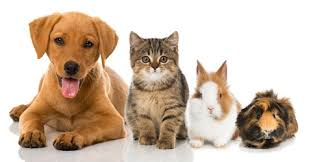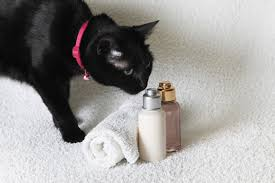When using essential oils on your pet seems like a good idea
Essential oils are incredible compounds that are used by many people both domestically and in their work. They are most often included in our beauty products and will be one of the main scent ingredients in massage oils that are used by massage therapists and reflexologists. These powerful oils have been used for centuries and it is their scents that can trigger some positive effects from within the body. They should always be used after seeking advice from a qualified aromatherapist as there are certain contraindications for some people with pre-existing medical conditions.

As well as being incredibly useful for both ourselves and our children you can use essential oils on animals and alternative animal therapists have been doing this for many years. But just as you should follow certain safety procedures when using them on yourself there are similar guidelines for using them on animals.
There are a couple of essential oils that are worth considering and these are:
- Lemongrass – this oil helps as a pest protection and is particularly effective against fleas and ticks. It will not help with a flea outbreak and you should seek the advice of a vet and implement the appropriate treatment for these. What it will do is help to protect your pet from future outbreaks as the scent acts as a natural repellent.
- Lavender – this is classed as the most royal of essential oils and is used to help animals with insomnia and a variety of different types of anxiety. There are many vet surgeries that will diffuse a small amount of lavender into the atmosphere in the clinic to help reduce the natural anxiety that some animals experience on visiting the vet.

As well as there being some great oils to use on your furry friends there are also some that you should be avoiding. These are:
- Tea tree, oregano, cinnamon and thyme are classed as ‘hot oils’ and should be used with extreme caution on animals especially cats. In felines these oils can cause problems with the toxicity levels in their livers and kidneys.
- Clove, anise and juniper should not be used on dogs as they can produce sensitivities in their skin as well as other body function problems.
Animals have an extremely heightened sense of smell and so any essential oils that are used should always be diluted in a carrier oil or diffused in water (it is important to ensure that your pet doesn’t have access to this water to drink). Cats have incredibly sensitive respiratory systems and you can find that using some essential oils will make you cat more susceptible to complication such as feline asthma.


